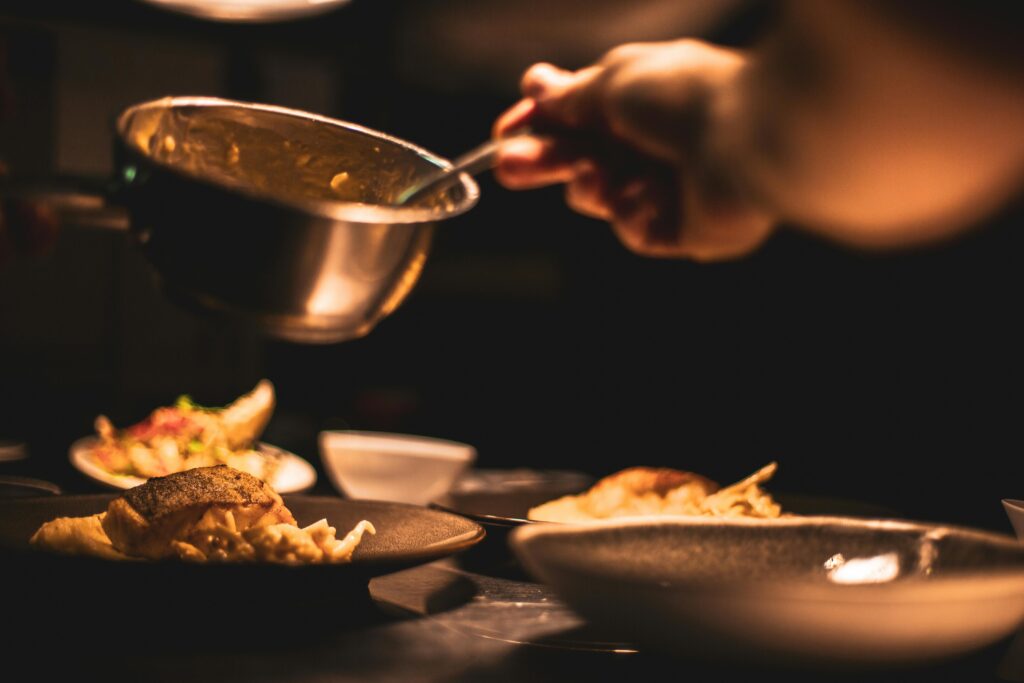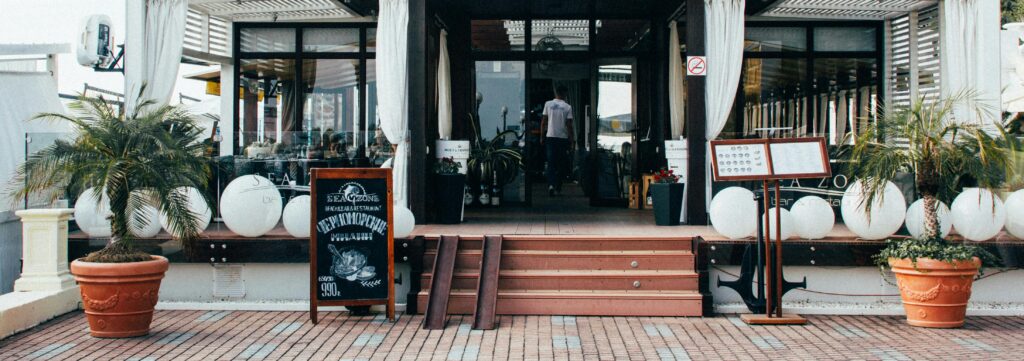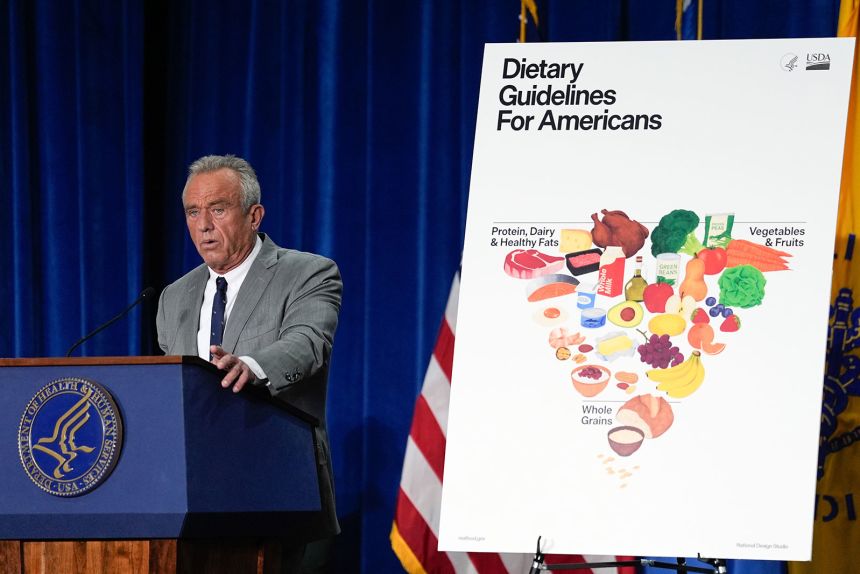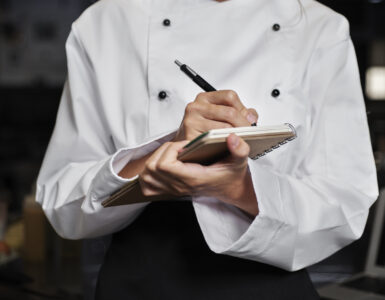The restaurant industry is fast-paced, demanding, and full of moving parts—from menu planning and staff management to maintaining customer satisfaction and regulatory compliance. While much of a restaurant owner’s energy is dedicated to daily operations, it’s equally important to address the less visible, but critical, aspects of business protection. One of the smartest steps any food business can take is comparing restaurant insurance quotes to ensure they have the right coverage at the best possible rate.
Even with careful planning and dedication, restaurants are exposed to a wide range of risks. Kitchen fires, employee injuries, liquor-related liabilities, and foodborne illness claims are just a few of the challenges that can quickly escalate into major financial setbacks. That’s why securing comprehensive restaurant business insurance is essential—not only for financial protection but also for peace of mind.
Commercialize Insurance Services (CIS) helps restaurant owners understand what types of coverage are most relevant to their unique operations. By exploring their options and comparing restaurant insurance quotes, business owners can make informed decisions that align with their risk level, budget, and long-term goals. This proactive approach not only safeguards their investment but also contributes to a more stable and resilient business model.
Why Restaurant Insurance Is Non-Negotiable
Operating in a fast-paced and high-risk environment, the food service industry faces a unique set of challenges. The daily combination of perishable inventory, constant customer traffic, open flames, and sharp tools creates an environment where accidents can and do happen. Without adequate protection, a single unexpected event could disrupt operations—or worse, threaten the survival of the entire business.
Restaurant insurance is not a luxury—it’s an essential safeguard. It protects the business, staff, patrons, and owners from the financial consequences of everything from property damage to liability claims. With the right coverage in place, restaurant owners gain more than just financial security—they gain the peace of mind needed to stay focused on delivering exceptional food and service.
Tailoring Insurance to Fit Restaurant Type
Not all restaurants are created equal, and neither are their insurance needs. Each type of food business comes with distinct risks that require a custom coverage approach:
-
Fine Dining: These establishments often need broader property and liability coverage due to higher-value interiors, upscale clientele, and elevated service standards.
-
Fast Food & Quick Service: With fast-paced environments and frequent staff turnover, coverage such as workers’ compensation and equipment breakdown is a priority.
-
Food Trucks: Mobile operations demand commercial auto coverage and protection for on-the-go equipment and cooking gear.
-
Bars & Pubs: These venues should prioritize liquor liability and assault and battery coverage to manage alcohol-related exposures.
Finding the Right Fit
Commercialize Insurance Services (CIS) specializes in helping restaurant owners navigate the complexities of coverage by comparing restaurant insurance quotes based on their business model and operational risks. Whether the goal is to reduce costs, expand protection, or better align with local regulations, comparing restaurant insurance quotes is a vital step in building a strong foundation for long-term success.

Understanding What Restaurant Insurance Doesn’t Cover
While restaurant insurance is designed to provide broad protection, it’s important for business owners to understand that not all risks are covered. Being aware of common policy exclusions helps avoid costly surprises when filing a claim. Here are some typical exclusions found in most restaurant insurance policies:
-
Wear and Tear: Gradual deterioration of equipment or property due to normal use is considered routine maintenance and is not covered.
-
Intentional Acts: Any damage or injury resulting from deliberate actions by the restaurant owner or employees is excluded.
-
Pandemics and Infectious Diseases: Most standard business interruption policies do not include coverage for losses due to pandemics, unless specifically endorsed.
-
Unlicensed Operations: Operating without required licenses or permits can invalidate your coverage and result in denied claims.
Understanding these exclusions is critical when selecting a policy and evaluating potential gaps in protection.
What Determines the Cost of Restaurant Insurance in Florida?
The cost of restaurant insurance in Florida can vary widely based on a number of factors. Knowing what influences premium rates can help restaurant owners budget accurately and make informed decisions when comparing restaurant insurance quotes:
-
Type and Size of Restaurant: A food truck has different exposures than a full-service fine dining restaurant, which affects the scope and cost of coverage.
-
Number of Employees: More staff means higher premiums for Workers’ Compensation and other employee-related coverage like EPLI (Employment Practices Liability Insurance).
-
Payroll: Workers’ Compensation premiums are often calculated based on a percentage of total payroll.
-
Location: Areas prone to hurricanes, floods, or high crime may increase property and liability premiums.
-
Claims History: A record of frequent or severe past claims can raise premiums or limit coverage options.
-
Coverage Limits and Deductibles: Opting for higher coverage limits and lower deductibles will increase premium costs.
-
Types of Coverage Purchased: The more comprehensive your insurance package (e.g., adding cyber liability, liquor liability, etc.), the higher the total premium.
-
Risk Management Practices: Restaurants that invest in safety protocols, staff training, and security systems may be eligible for discounts.
Because each food business is unique, comparing restaurant insurance quotes from multiple providers is essential to finding the best value and fit for your needs.
Insurance + Risk Management: A Smart, Two-Pronged Approach
Insurance should not be the only line of defense. An effective risk management strategy works in tandem with insurance coverage to reduce claim frequency, prevent losses, and lower premiums over time. Some key best practices include:
-
Staff Training: Ongoing education in safety, hygiene, and customer interaction minimizes errors and workplace accidents.
-
Regular Maintenance: Routine checks on fire suppression systems, cooking equipment, and refrigeration units help prevent costly breakdowns or hazards.
-
Incident Documentation: Keeping clear records of accidents, injuries, and near-misses supports claims and helps identify patterns.
-
Security Enhancements: Installing surveillance systems, alarm monitoring, and secure point-of-sale systems can deter theft and fraud.
By implementing strong risk controls and comparing restaurant insurance quotes, restaurant owners can build a robust defense against both predictable and unexpected threats—protecting not just profits, but long-term business viability.
The CIS Advantage: Expert Guidance for Food Business Protection
Choosing the right insurance for a restaurant isn’t just about fulfilling a legal requirement—it’s about protecting years of investment, passion, and hard work. With so many policy options and potential risks to consider, comparing restaurant insurance quotes can be a complex process. That’s where Commercialize Insurance Services (CIS) makes a difference.
CIS brings extensive industry knowledge and a personalized approach to each client interaction. Recognizing that no two restaurants operate the same way, CIS works closely with owners to understand their specific operational risks, financial constraints, and long-term goals. Whether insuring a local bistro, a fast-casual chain, or a high-volume catering operation, the CIS team helps identify the right coverage for every type of food business.
What sets CIS apart is their access to a wide range of insurance carriers and their ability to offer customized comparisons. This ensures that restaurant owners aren’t limited to a one-size-fits-all solution but can instead evaluate multiple options to make informed, cost-effective decisions. By comparing restaurant insurance quotes through CIS, clients gain not only better pricing but also clearer insights into what each policy offers.
Core Protection: Restaurant Property Insurance
At the heart of a strong insurance strategy lies property coverage—a fundamental safeguard for the physical assets that keep a restaurant running. Property insurance is a critical component of restaurant business insurance and typically includes three essential areas of protection:
Building Coverage (If Owned)
For restaurant owners who also own their building, this coverage provides protection for the physical structure, including:
-
The foundation, walls, and roof
-
Permanently installed fixtures and built-ins
-
Repairs or replacement costs resulting from covered events such as fire, vandalism, hail, or windstorms
For example, if a kitchen fire damages the structure of the building, this insurance can help cover the cost of repairs and get operations back on track quickly.
Business Personal Property Coverage
This portion of the policy protects the movable items inside the restaurant, such as:
-
Equipment: ovens, refrigerators, POS systems, and kitchen appliances
-
Furnishings: tables, chairs, décor, and light fixtures
-
Inventory: food, beverages, and cleaning supplies
-
Customer belongings: temporarily in the restaurant’s care
Imagine a scenario where a water pipe bursts overnight, soaking the dining room and destroying kitchen appliances. Property coverage can reimburse the business for those damages and help replace essential equipment.
Business Income and Extra Expense Coverage
In the event of a temporary closure due to a covered incident (like a fire or storm), this type of insurance helps to:
-
Replace lost income
-
Cover ongoing fixed costs (e.g., rent, utilities, payroll)
-
Pay for additional expenses needed to resume operations quickly (such as temporary relocation or expedited repairs)
This type of coverage ensures that even in the face of major disruption, the business has a financial lifeline to stay afloat during the recovery process.
Why Comparing Quotes Matters
Not all restaurant insurance policies are created equal, and pricing can vary dramatically based on factors like location, building age, and coverage limits. That’s why comparing restaurant insurance quotes with the help of an expert team like CIS is a smart, strategic move.
With their ability to match restaurant owners to tailored coverage options from multiple carriers, CIS ensures their clients don’t just get insured—they get protected with precision and care.

Managing Liability Risks in the Restaurant Industry
Liability risks in the food service industry extend far beyond physical property damage. Restaurant owners must also account for a wide range of third-party claims that can arise from everyday operations. That’s why general liability insurance remains a foundational component of any restaurant’s insurance portfolio. Understanding what this coverage includes—and its limitations—is key to making informed decisions when comparing restaurant insurance quotes.
General liability insurance typically covers:
-
Customer Injuries: Incidents such as slips on wet floors, trips over unmarked steps, or cases of food poisoning can result in costly claims. If a customer is injured on the premises or due to the food served, general liability insurance can help cover medical expenses, legal defense costs, and settlements if the business is found liable.
-
Property Damage: If a restaurant-related accident causes damage to third-party property—such as a fire that spreads to a neighboring business or a delivery vehicle that damages another structure—general liability insurance can provide financial coverage for repairs or replacements.
-
Advertising Injury: This lesser-known aspect of liability insurance covers claims related to slander, libel, copyright infringement, and other offenses linked to a restaurant’s marketing or promotional activities.
When comparing restaurant insurance quotes, it’s crucial to ensure that general liability coverage is comprehensive and tailored to the unique exposures of the business.
Protecting Employee Health and Business Stability
Employees are one of the most valuable assets in any restaurant. Given the physically demanding nature of the food service industry—where slips, burns, and repetitive stress injuries are common—workers’ compensation insurance is not just important, it’s legally required in most states.
Workers’ compensation typically covers:
-
Medical Costs: Whether it’s a kitchen burn, fall, or lifting injury, this coverage ensures that employees receive the necessary medical care without out-of-pocket expenses.
-
Wage Replacement: If an employee is unable to work during recovery, workers’ compensation can provide partial income to support them through their absence.
-
Rehabilitation Services: Coverage may also include physical therapy, occupational rehabilitation, and other support services aimed at helping employees return to work safely.
-
Death Benefits: In the event of a fatal work-related accident, workers’ compensation can offer financial support to the employee’s surviving family members.
Securing robust workers’ compensation coverage not only fulfills legal obligations but also promotes employee well-being and business continuity.
The Importance of Strategic Coverage Choices
Restaurant owners must navigate a range of operational risks—from customer incidents and property damage to staff injuries and advertising missteps. As these liabilities can vary widely depending on the business model, comparing multiple insurance options is essential.
Comparing restaurant insurance quotes allows owners to:
-
Identify gaps in coverage
-
Evaluate premium differences based on risk exposure
-
Customize policies that align with their specific business type
With guidance from experts like Commercialize Insurance Services (CIS), restaurateurs can make confident, informed decisions that protect their people, their reputation, and their bottom line.
Specialized Coverages for the Restaurant Industry
Beyond the fundamental coverages, the restaurant industry has unique risks that necessitate specialized insurance options:
- Liquor Liability Insurance: If your restaurant serves alcohol, liquor liability insurance is essential. This coverage protects you against claims arising from the actions of intoxicated patrons who may cause bodily injury or property damage. This can include incidents occurring on your premises or even off-site if the intoxicated individual was served at your establishment.
- Food Contamination Insurance (Spoilage Coverage): Refrigeration malfunctions, power outages, or even contamination can lead to significant food spoilage. This coverage can help recoup the costs of spoiled food and potentially lost income due to the incident.
- Equipment Breakdown Insurance: Standard property insurance policies may not cover damage resulting from mechanical or electrical breakdowns of essential restaurant equipment like ovens, refrigerators, or HVAC systems. Equipment breakdown insurance can help cover the costs of repairing or replacing this vital equipment.
- Cyber Liability Insurance: In today’s digital age, restaurants handle sensitive customer data, including credit card information. Cyber liability insurance helps protect your business from financial losses and legal liabilities resulting from data breaches or cyberattacks. This can include costs associated with notification, credit monitoring, legal defense, and recovery.
- Hired and Non-Owned Auto Insurance: If your employees use their personal vehicles for business purposes, such as making deliveries or running errands, your commercial auto policy might not provide coverage. Hired and non-owned auto insurance can help protect your business in the event of an accident involving an employee’s personal vehicle while on company business.
- Umbrella Insurance (Excess Liability): This provides an extra layer of liability protection above the limits of your other liability policies, such as general liability or auto liability. In the event of a significant claim that exceeds the limits of your primary policies, umbrella insurance can help protect your business assets.

Insurance as a Reputation Protector
In today’s world of online reviews and social media, a single incident can not only cause financial damage but can also harm a restaurant’s public image. Insurance plays a crucial role in protecting a restaurant’s reputation by enabling swift response and resolution to any issues that arise. Whether it’s compensating affected customers or repairing physical damage quickly, comprehensive coverage ensures that your brand remains intact.
Customers are more likely to trust a restaurant that handles incidents with professionalism and responsibility. Partnering with CIS gives restaurateurs the confidence to turn challenges into opportunities to reinforce their reliability and commitment to safety.
The CIS Advantage: Personalized and Professional Support
At CIS, Commercial Insurance Services, the team understands that no two restaurants are the same. With deep industry expertise and a commitment to personalized service, CIS helps restaurant owners assess their risks, identify necessary coverage, and find policies that fit their budget.
By offering access to multiple carriers and tailored comparisons, CIS simplifies the process of selecting the right insurance. Explore restaurant insurance coverage options with CIS to gain clarity and confidence in your insurance decisions.
Factors Influencing the Cost of Restaurant Insurance
The cost of restaurant business insurance can vary depending on several factors, including:
Location: Restaurants in high-traffic areas or those with a history of claims may face higher premiums.
Size and Revenue: Larger restaurants with higher revenue typically have greater exposure and may require more extensive coverage, impacting costs.
Type of Cuisine and Service: Restaurants with higher-risk operations, such as those with live cooking demonstrations or late-night service, might see higher premiums.
Claims History: A history of frequent or costly claims can lead to increased insurance rates.
Safety Measures: Implementing strong safety protocols, such as regular inspections, employee training, and security systems, can potentially lower insurance costs.
Coverage Limits and Deductibles: Higher coverage limits and lower deductibles generally result in higher premiums.

Why Partner with a Specialist Like CIS?
Navigating the complexities of restaurant business insurance can be overwhelming. Working with an experienced insurance provider like Commercialize Insurance Services (CIS) offers several key advantages:
Industry Expertise: CIS understands the specific risks and challenges faced by restaurant owners and can tailor insurance solutions to meet your unique needs.
Comprehensive Coverage Options: CIS offers a wide range of insurance products designed to address the diverse risks within the restaurant industry.
Personalized Service: CIS takes the time to understand your business operations and provides personalized guidance to ensure you have the right coverage in place.
Competitive Rates: CIS works with multiple reputable insurance carriers to help you compare restaurant insurance quotes and find cost-effective solutions without compromising on protection.
Claims Support: In the unfortunate event of a claim, CIS provides dedicated support to guide you through the process and ensure a smooth resolution.
Compare restaurant insurance quotes, it’s essential to look beyond just the price to ensure you’re getting comprehensive coverage tailored to your specific needs. Each restaurant has unique risks depending on factors like size, location, type of cuisine, and whether alcohol is served. A thorough comparison should include key policy elements such as general liability, property insurance, workers’ compensation, and business interruption coverage. Be sure to evaluate the coverage limits, deductibles, exclusions, and customer service reputation of each provider. Taking the time to compare quotes carefully can help protect your business from unexpected financial losses while ensuring long-term stability.
In today’s fast-paced and risk-heavy food service industry, having the right insurance strategy is not just a formality—it’s a foundational component of long-term success. By working with knowledgeable partners like Commercialize Insurance Services (CIS), restaurant owners can navigate the complexities of coverage with confidence. From evaluating liability risks to protecting valuable property and ensuring business continuity, CIS provides the tools and support necessary to make informed choices. With expert guidance and a focus on comparing restaurant insurance quotes, food business owners can secure comprehensive protection tailored to their unique needs—safeguarding their operations, their employees, and their future.
The Types of Restaurant Insurance Coverage You Need | landing







